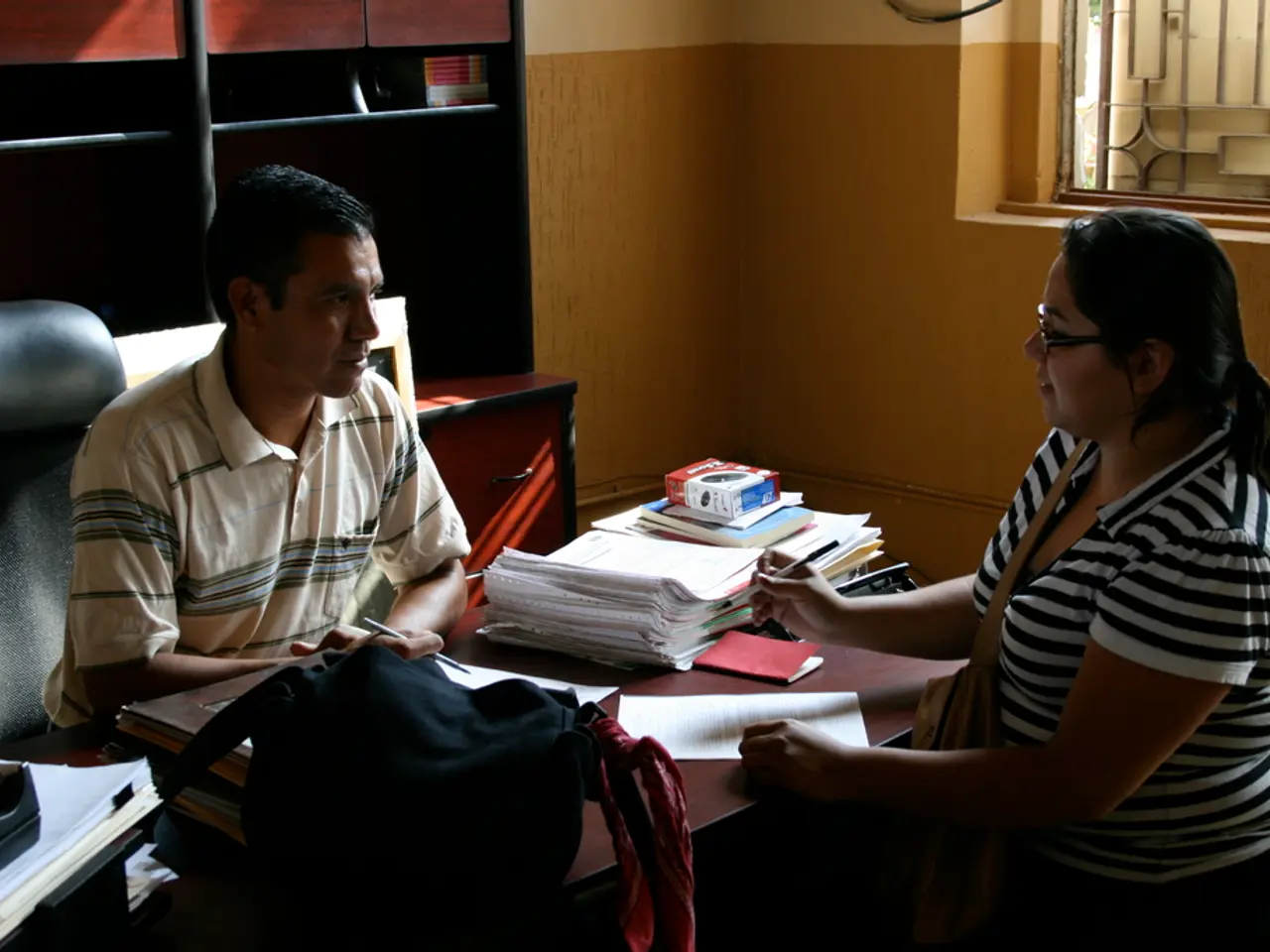Chest discomfort in individuals with psoriatic arthritis: Identifying symptoms, suggested treatments, and additional information
In the realm of psoriatic arthritis (PsA), a type of inflammatory arthritis that affects joints and entheses (where tendons or ligaments meet bone), chest pain can be a concerning symptom. This article delves into the causes, management, and treatment of chest pain in PsA patients.
Chest pain in PsA patients is often due to inflammatory conditions such as costochondritis or Tietze syndrome, both of which involve inflammation of the costosternal or costochondral joints. Other potential causes include inflammation of joints and entheses in the chest area, other musculoskeletal causes, and cardiovascular comorbidities.
Costochondritis, the inflammation of cartilage connecting ribs to the sternum, can cause reproducible chest wall pain worsened by movement or palpation. Tietze Syndrome, similar to costochondritis but typically with swelling, can be triggered by PsA and presents with localized sternal pain and tenderness.
Management and treatment of chest pain related to PsA involve the use of anti-inflammatory medications such as nonsteroidal anti-inflammatory drugs (NSAIDs) like ibuprofen or naproxen, disease-modifying antirheumatic drugs (DMARDs), and oral corticosteroids. Physical therapy and activity modification can also help avoid aggravating chest wall pain through repetitive strain or injury. Given the overlapping symptoms, any severe or worsening chest pain should be evaluated to exclude cardiac or other serious causes.
Beyond managing chest pain, it's crucial for PsA patients to address mental health issues. Stress, anxiety, and depression can affect physical health and increase the risk of heart disease. Maintaining a moderate weight through changes to diet and low-impact exercises can help manage PsA symptoms. A Mediterranean diet, which is high in fresh fruits, vegetables, legumes, and whole grains, can lower the risk of cardiovascular disease.
Lastly, it's essential to remember that PsA is an inflammatory form of arthritis that can increase the risk of cardiovascular disease and its associated conditions like high blood pressure, high cholesterol, and atherosclerosis. Controlling PsA through medications may reduce the risk of complications. If experiencing severe chest pain, difficulty breathing, pain in the arms, jaw, neck, upper back, or stomach, lightheadedness, nausea or vomiting, excessive sweating, or other serious symptoms, call 911 or the nearest emergency department immediately.
In conclusion, for PsA patients experiencing chest pain, it's important to seek support for mental health symptoms, discuss medication options with a doctor, and understand the potential causes and management strategies. By doing so, patients can better manage their condition and reduce the risk of heart disease complications.
- Inflammatory arthritis like psoriatic arthritis (PsA) can lead to chest pain, primarily due to conditions such as costochondritis and Tietze syndrome.
- Costochondritis, an inflammation of the cartilage connecting ribs to the sternum, is often responsible for reproducible chest wall pain worsened by movement or palpation.
- Tietze Syndrome, similar to costochondritis but with swelling, can be aggravated by PsA and presents with localized sternal pain and tenderness.
- Treatment for chest pain related to PsA involves medications such as NSAIDs, DMARDs, and oral corticosteroids, as well as physical therapy and activity modification.
- It's crucial for PsA patients to address mental health issues, as stress, anxiety, and depression can impact physical health and increase the risk of heart disease.
- Maintaining a moderate weight through changes to diet and low-impact exercises can help manage PsA symptoms and lower the risk of cardiovascular disease, particularly with a Mediterranean diet.
- PsA patients should be aware that their condition can escalate the risk of cardiovascular disease and associated conditions like high blood pressure, high cholesterol, and atherosclerosis.
- If experiencing severe chest pain, difficulty breathing, or other serious symptoms, immediate medical attention should be sought by calling 911 or the nearest emergency department.




